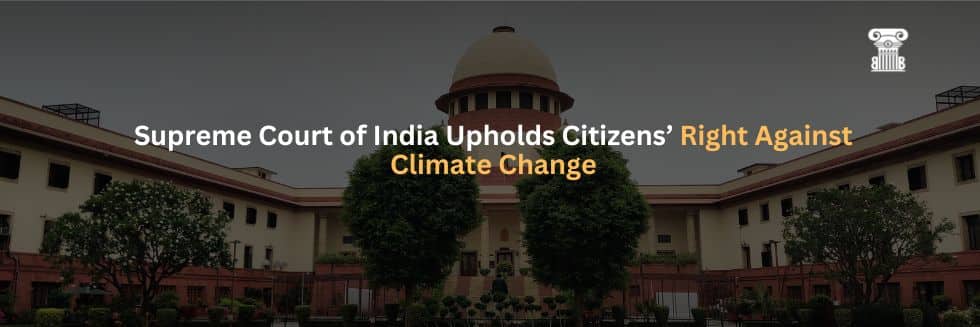In a significant legal development, the Supreme Court of India, in the case of M.K. Ranjitsinh v. Union of India (2021), has reasserted the citizens’ entitlement to be shielded from the detrimental impacts of climate change. This judgment is essential as it upholds the importance of Articles 14 and 21 of the Constitution, and was delivered by a three-judge Bench consisting of Chief Justice D Y Chandrachud, Justice J B Pardiwala, and Justice Manoj Misra. The case revolved around the preservation of the critically endangered Great Indian Bustard (GIB), but its implications reach far beyond the safeguarding of a single species.
The case originated from a writ petition lodged by M K Ranjitsinh, a retired civil servant and conservationist, who sought protection for the GIB and the Lesser Florican, both on the verge of extinction. The petition called for immediate actions such as the development and execution of an emergency response plan, which included the installation of bird diverters and the removal of infrastructure intruding on critical habitats. The case highlighted the tension between conservation initiatives and development activities, especially the erection of overhead transmission lines, as emphasized in the Supreme Court’s order of April 2021.
In its latest judgment, the Supreme Court recognized the intricacy of the issue and revised its prior order on burying power lines. The Court stressed the necessity for expert evaluations on the viability of such actions while also highlighting the link between climate change and human rights, reflecting worldwide apprehensions about environmental degradation. Notably, the judgment embodies the Union’s dedication to conservation initiatives while addressing the difficulties posed by climate change.
The Court’s interpretation of Articles 14 and 21 demonstrates a more comprehensive comprehension of fundamental rights, including the right to a clean environment and a dignified life. By situating environmental issues within the context of human rights, the Court aligns with its historical position on broadening the ambit of Article 21 beyond mere survival to guarantee a meaningful life for all citizens. This judgment reaffirms the judiciary’s role in upholding environmental justice and emphasizes the need for legislative action.
Environmental specialists and legal academics have lauded the judgment as a significant step forward in India’s environmental jurisprudence. By acknowledging the “right against adverse effects of climate change,” the Supreme Court not only addresses urgent environmental issues but also sets the stage for future litigation and policy measures.
This decision not only strengthens India’s international commitments but also underscores the judiciary’s role in protecting citizens’ rights in the face of environmental challenges.


